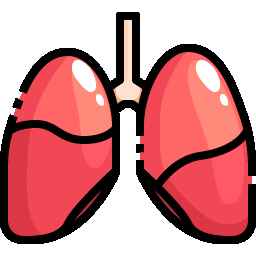Quick poll – Would like everyone reading this please answer the following question honestly:
Do you wear a mask when you are machine polishing?
Consider the fact that as your abrasive compound breaks down and the lubricants begin to dry you will be producing airborne dust particles…
Take this prognosis from inchem.org for example:
Chronic aluminium oxide inhalation may cause pneumoconiosis with cough and exertional dyspnoea, diffuse reticulonodular shadowing on chest X-ray and a restrictive pattern of pulmonary function. In severe cases death may result from respiratory failure or corpulmonale.
Scary huh?
What about when spraying wheel acid? Or tar remover? Or any of the other chemicals designed to strip off most of the things you naturally have in or on your body? Surely a simple FFP rated facemask is a worthwhile investment for your own long-term health…?
Flicking through social posts becomes quite concerning. The number of pictures and videos appearing online that show people – including manufacturer promotion images! – not wearing any basic protective equipment, spraying one chemical over another or having an endless row of unlabelled bottles on display. PPE is a drum we have been banging for a while, and it’s why all of our UK Detailing Academy courses include sections specifically on Health & Safety. Whilst it may not be the sexiest of detailing topics, like many other facets of a sustainable business it can be the difference between a long-term career or a “flash in the pan” due to health problems or other related issues.
It should really be common sense, that; before you begin any job, you should make sure that you are familiar with the chemicals you will be using. Ideally, you would consult the Manufacturer’s Safety Data Sheets (SDS) to gain sufficient information the first time you use a product, but that may not always be feasible. In that instance, then the erotically named “Classification, Labelling and Packaging Regulations (CLP)” will be your friend, as they ensure that your product will have sufficient information shown for everyday use including usage directions, necessary Personal Protective Equipment (PPE) and basic First Aid measures. These, combined, will clue you up as to what precautions you might need to take and whether you need gloves, eye protection, a face mask, etc in order to use the product safely.
Anyone purchasing a potentially hazardous chemical product should have access to the SDS, and carry this with them or have easy digital access, because they contain so much more information than can be ascertained from the product label, and you never need that information until you seriously need it…
Many SDS will state that you need a basic amount of PPE whilst using the product under normal circumstances, however, sometimes you might need to dig a little deeper through the document to gather further information about other items that would become a necessity if, for example, you are using it inside a unit rather than outside in the fresh air this will affect those “always use in a well-ventilated space” clauses. A very wise man once said to me “If you can smell it-it’s already in you”. How often have you been caught with the smell of Tar Remover up your nose?!
My personal philosophy is – the Safety Data Sheets are there to give you information about the product you are using; the Product Label is there to give other people information so they can help you in the event of an incident occurring whilst you use it. If you have a shelf or van full of unlabelled bottles, then they can’t do that!
Safety Data Sheets will also give you a lot more information when it comes to identifying the type of product you are about to use. Where it is relevant, the Chemical Properties section will identify the pH of the substance (when it is inert in the bottle) and that in turn will give you some information as to whether it is safe to use on certain surfaces. The greater knowledge of the products you have at your disposal will allow you to make better-informed decisions about the best chemical to use in each circumstance you are faced with; and that, in turn, leads to less guesswork, far greater efficiency – of both time and product usage, and a better understanding of why you would use X to remove Y from Z surface whilst reducing any potential for harm…
RM.
©2021 UK Detailing Academy. No unauthorised reproduction of this blog is permitted in part or as a whole without author permission






